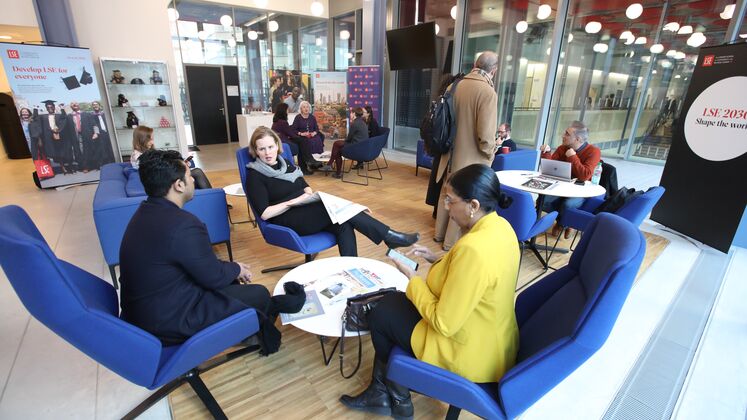Consider this a sojourn: still writing, but not citing.
Dissertation season is upon us (to be read metaphorically); the spring of finding the right supervisor, the summer of interviews and transcriptions, the fall of analysis, and now the winter of writing up the final product. And this winter has been melancholic.
Research writing is a lonely process. Here you are, having done all this research, trying to convince an imaginary audience that yes my findings matter, no there is actually no observed correlation, here is the gap in the literature, and there I filled it. And so on. An eternal monologue until you have to force yourself to hit stop.
But a lot of the times, it doesn’t stop. I, along with many others in my cohort, have had tremendous difficulty in setting reasonable expectations for ourselves. Because, think about it. The people who come to the LSE are brilliant, hard-working, and passionate to make an impact. Take all of those qualities, add a task that the majority of us haven’t done before, and set a deadline: boom, you have a stressed-out individual on the brink of neurosis.
Mental health in academia is a huge concern given the largely self-motivated nature of success in the field. This acknowledgment section of a recent academic paper showed me just the kind of toll it can take on you. I have seen friends of mine look so battered and burnt out through this process, that it forced me to stop and reflect.
One of the main antecedents to the stress and anxious feelings is what is known as “perfectionism paralysis.” My friend Teodora shared this great article with me that has entirely changed my view of the dissertation process. See, when I say dissertation process, the process part kind of dies away, and all you see is this massive 10,000 word chunk that has to be ground-breaking and elegant and full of parentheses and years (can you tell I’ve been working on my literature search?). But it is a process, and you need to write a lot of unintelligent drivel to get to the intelligent drivel.
If there’s one thing I’ve learnt from my MSc at LSE, it’s that you need to start early. Hands down. Your ideas will change, evolve, you will have more conversations, read more papers, and when you’re resting, some sweet sweet idea recombination will occur and you will wake up with a gorgeous theory substantiated by gorgeous evidence. All of this takes time.
So, take your time. But work hard. Work steadily to produce drafts that you can build on. By the way – it’s not supposed to be perfect. It’s supposed to illustrate that you can take an idea, explain why you had the idea, detail what you did with the idea, discuss what you found, and tie it back to the idea. You can do that.
Finally, I leave you with this piece of writing advice by Ernest Hemingway that I think back to every time I struggle to put finger on keyboard (not as classy as ‘pen on paper,’ but it’s the times we live in):
“All you have to do is write one true sentence. Write the truest sentence you know.
Then write another.”
Back to work now.





